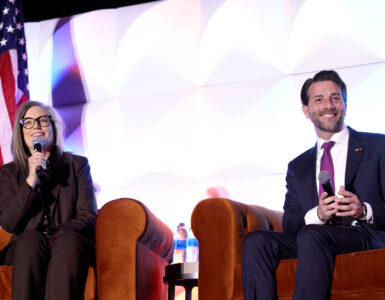Republican Congressman David Schweikert of Arizona and Democratic Congressman Brad Schneider of Illinois have teamed up to voice their concerns over steel and aluminum tariffs against Israel, one of Arizona’s top trading partners. The two House members penned a letter to Robert Lighthizer, the U.S. trade representative, imploring him to work with the Trump administration to exempt Israel from the tariffs and join other major trade partners, including Canada, Mexico, Brazil, South Korea, and Australia.
Israel exports in steel and aluminum are small in comparison to other trading partners, the relationship with Israel is something that Schweikert and Schneider want to protect.
“While these numbers may seem small, the fact remains that the U.S. is a major trading partner for Israel and any disruption in the economic relationship will have a far-reaching impact,” wrote the congressmen, who are members of the House Ways and Means Committee. “We do not believe imports of steel and aluminum from Israel are a threat to U.S. national security and are asking you to explain why Israel has not been granted an exemption.”
Trump is controversially invoking a national emergency statute to impose tariffs on steel and aluminum.
Industrial production in general has seen an uptick over the past two years. While this poses an opportunity for better import levels, imports of steel and aluminum products impacted by the Trump administration’s metal tariffs have dropped. These imports were down more than $1.4 billion, about a six percent drop, from the first half of 2017 and the first half of 2019–this, according to trade data from U.S. News.
“At the base of this discussion is the simple fact that the State of Israel is not a national security threat to the United States,” said Rep. Schweikert. “Ensuring that our greatest ally in the region is treated similarly to other key allies is important to show our seriousness and commitment to the Jewish state. As a beacon of democracy in the region, with a long history of shared democratic values between our two nations, it is important we do not establish a precedent that Israel is a security threat.”
The tariffs of 25 percent on steel imports and 10 percent on aluminum were originally announced back in March of 2018. Currently, the only tariffs that have been lifted have been with Canada and Mexico while certain products from Argentina, Brazil, Australia, and South Korea, as listed above, have also received some trade exemptions on the steel and aluminum duties.
Monthly industrial output and business investment analysis shows some disappointment in the industry. The drop off in metal demand can be related to the business uncertainty that has emerged during the ongoing international trade issues with countries like China and those in the European Union.
Schweikert and his allies argue that the scale of business with Israel is irrelevant, that this about the relationship as a whole and taking care of that relationship moving forward that’s more important, especially for continued bilateral success in the years to come.
“As Israel is a small country, the quantity of the trade is irrelevant; the important part here is treating our ally fairly,” says Schweikert. “Anyone who is familiar with the important work our two countries do together on the Iron Dome and other important mutual defense technologies knows that Israel is a trusted ally and friend.”
















Add comment